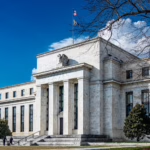CFPB Director Rohit Chopra, who had served in the role since being appointed by President Joe Biden in 2021 for a five-year term, has announced that he has been fired by President Donald Trump. According to CNN, Chopra received the news via an email from the White House Saturday morning.
Chopra then publicly announced the news via a post on X, formerly known as Twitter. In addition to noting that it had been an honor to serve in the role, Chopra posted a letter acknowledging and responding to President Trump. In the letter, former Director Chopra recalls the CFPB’s origins as a response to the 2008 financial crisis, and notes that the Bureau should serve to “make sure that the laws of our land aren’t just words on a page. Those laws are intended to check the enormous influence that powerful firms have over our daily lives. With so much power concentrated in the hands of a few, agencies like the CFPB have never been more critical.”

Chopra ended the letter by writing, “I hope that the CFPB will continue to be a pillar of restoring and advancing economic liberty in America, and I wish you good luck in serving our great country.”
The CFPB declined to comment on the matter, but CNN quoted a White House official as saying, “It’s the executive’s decision and prerogative to see who they want in that role.”
THE CFPB’S HISTORY OF CONTROVERSY
The news comes just days after a Bloomberg report that Trump administration was considering tapping the Office of Management and Budget (OMB) or the U.S. Department of the Treasury to oversee daily functions of the CFPB.
Earlier in the week, Sen. Ted Cruz had introduced the Defund the CFPB Act, which would zero out transfer payments from the Federal Reserve to the CFPB.
“The CFPB is an unelected, unaccountable bureaucratic agency that has imposed burdensome and harmful regulations on American businesses, banks, and credit unions,” said Sen. Cruz. “It is an unchecked Obama-era executive arm, and the Federal Reserve should not be transferring funds to it. Enacting this legislation would save American taxpayers billions of dollars and I call on the Senate to expeditiously take it up and pass it.”
The CFPB has been a lightning rod for political controversy since its inception, with many Republicans criticizing its goals, approach to regulation, and even the constitutionality of its funding structure.
The Supreme Court in May 2024 upheld that funding, ruling via a 7-2 vote both that the Bureau’s funding was constitutional and that it was in compliance with the Constitution’s Appropriations Clause.
The case, Consumer Financial Protection Bureau v. Community Financial Services Association of America, tested the Appropriations Clause of the U.S. Constitution that reads: “No Money shall be drawn from the Treasury, but in Consequence of Appropriations made by Law; and a regular Statement and Account of the Receipts and Expenditures of all public Money shall be published from time to time.”
“The Bureau’s funding statute satisfies the requirements of the Appropriations Clause,” said Clarence Thomas, Associate Justice for the U.S. Supreme Court in an opinion for the court. “The statute authorizes the Bureau to draw public funds from a particular source—’the combined earnings of the Federal Reserve System’—in an amount not exceeding an inflation-adjusted cap.”
The CFPB was established by the Dodd-Frank Wall Street Reform and Consumer Protection Act of 2010 in the wake of the financial crisis of 2007-2008. The role of the CFPB is to review the practices of companies, banks, and lenders in the financial services industry and work to protect consumers from predatory practices. Authorized by Congress in 2010, the role of the CFPB is to reform predatory and deceptive financial industry practices that policymakers believed led to a wave of mortgage defaults, and ultimately to the crisis and subsequent Great Recession.









